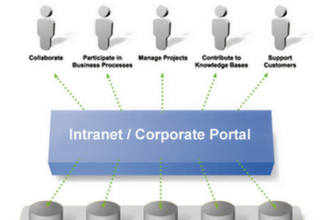In the world of broadband, South Korea is a titan, with top data speeds and market penetration, both for fixed line and wireless. Yet in a panel discussion at the Abu Dhabi Media Forum, Suk-Chae Lee, chairman of Korea’s KT Corporation, warned of a data logjam.
‘There are limits to the mobile network’ he said. Traffic surrounding big news events, such as the suicide of former president Roh Moo-hyun, nearly paralyzed KT’s network. He predicted that the limits of wireless networks could strengthen the hand of the same carriers that are failing to build robust networks. With shortages, they might be able to start billing for megabytes, instead of the more common all-you-can-eat subscriptions. ‘The dreams of the wireless phone companies will be realized’ he said.
The trouble is that handsets, like Apple’s iPhone, are picking up more of the data work from laptops. Lee mentioned on of KT’s customers, a gaming company, that gave iPhones to employees. In the first month, 60% of them moved all computing to their handsets and never even booted up their PCs. ‘Will the network sustain that heavy traffic?’ he asked…
In the world of broadband, South Korea is a titan, with top data speeds and market penetration, both for fixed line and wireless. Yet in a panel discussion at the Abu Dhabi Media Forum, Suk-Chae Lee, chairman of Korea’s KT Corporation, warned of a data logjam.
‘There are limits to the mobile network’ he said. Traffic surrounding big news events, such as the suicide of former president Roh Moo-hyun, nearly paralyzed KT’s network. He predicted that the limits of wireless networks could strengthen the hand of the same carriers that are failing to build robust networks. With shortages, they might be able to start billing for megabytes, instead of the more common all-you-can-eat subscriptions. ‘The dreams of the wireless phone companies will be realized’ he said.
The trouble is that handsets, like Apple’s iPhone, are picking up more of the data work from laptops. Lee mentioned on of KT’s customers, a gaming company, that gave iPhones to employees. In the first month, 60% of them moved all computing to their handsets and never even booted up their PCs. ‘Will the network sustain that heavy traffic?’ he asked. ‘It will have real trouble’ (A normal cell phone transmits about 20 mbs of data per month. With the average iPhone or Android, that number jumps to 400 mbs.)
In a later discussion, Ericsson CEO Hans Vestberg provided projections of exploding data traffic. Currently, he said, there are 4.6 billion mobile subscriptions in the world and 500 million broadband subscribers. Within four years, Ericsson expects the number of subscribers to grow to 7 billion (many from people with multiple subscriptions) and 3 billion people with broadband. He sees smart phones multiplying by four, and producing 25 times as much data as today.
By the year 2020, he expects 50 billion connected devices to be operating on earth. Many of those will be sensors. Machines will be communicating with each other, perhaps more than we do. But it still signals explosive growth of data.






